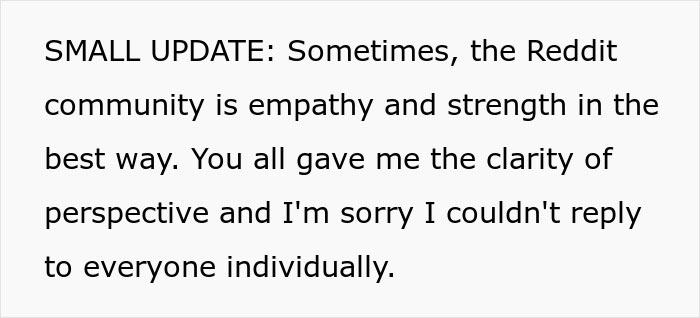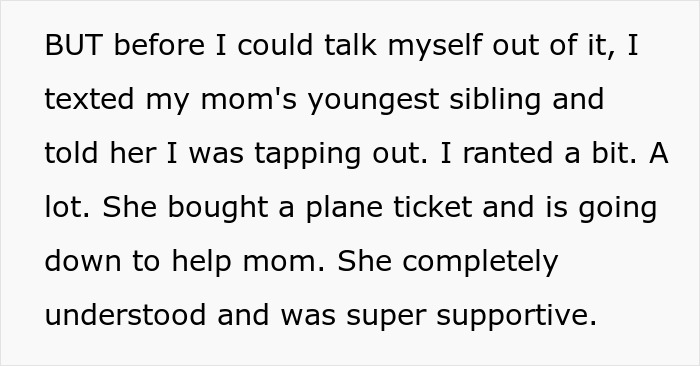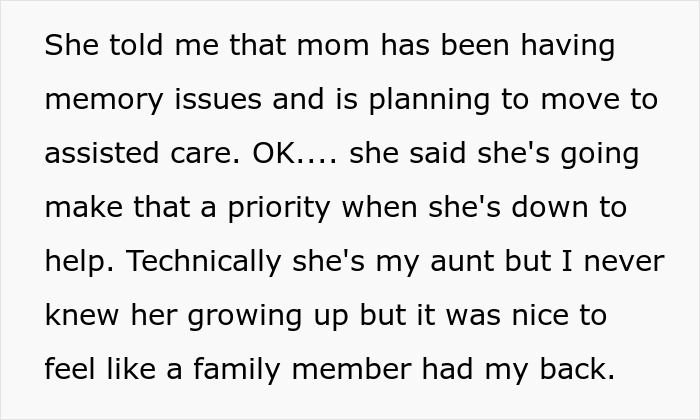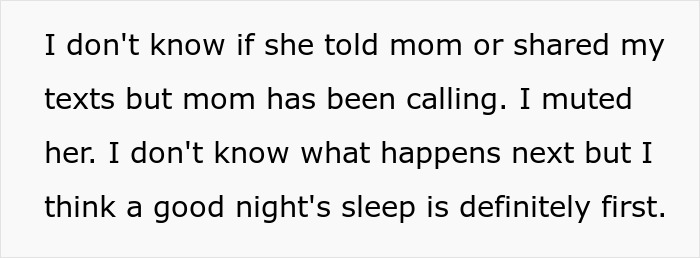Middle-aged woman and Reddit user Poesbutler has been having trouble with her elderly mother. However, the woman has a busy life, and finding time to travel and attend to the parent’s needs is difficult.
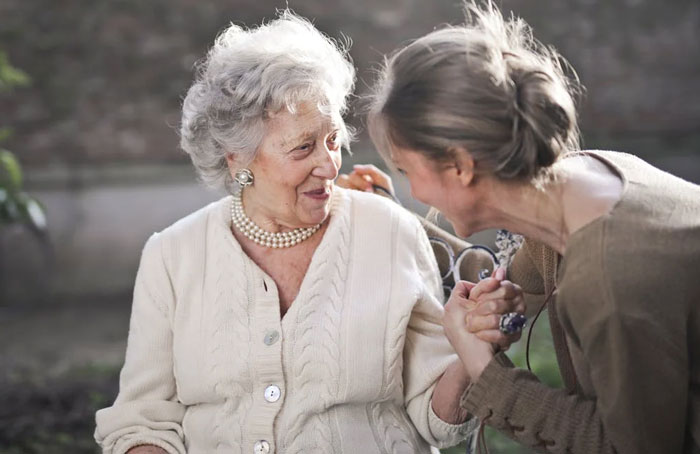
Image credits: Andrea Piacquadio / pexels (not the actual photo)

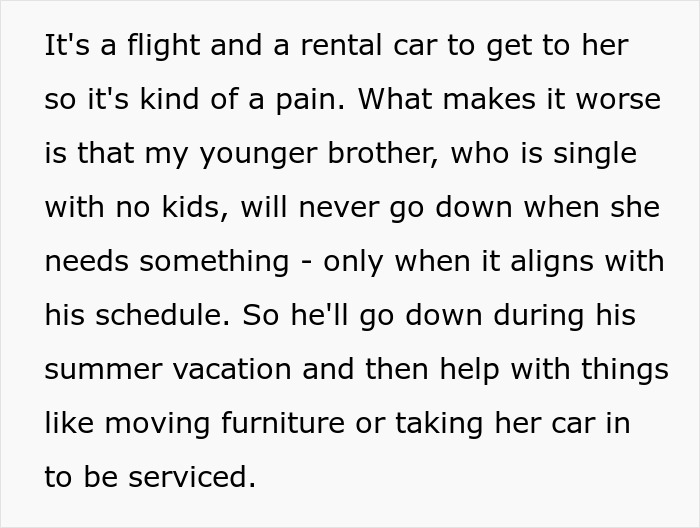

Image credits: Malte Luk / pexels (not the actual photo)
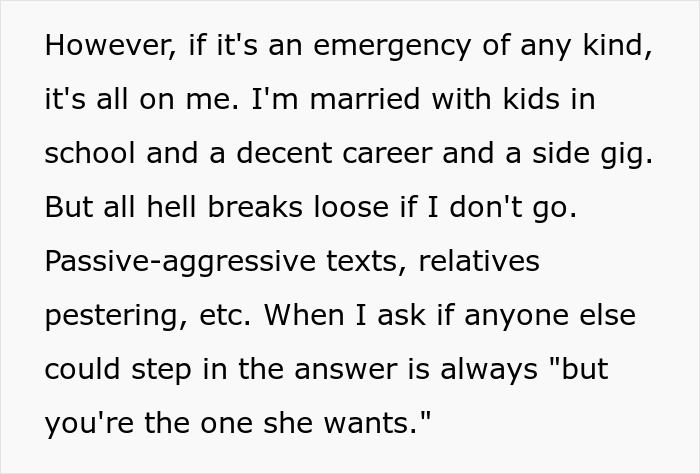
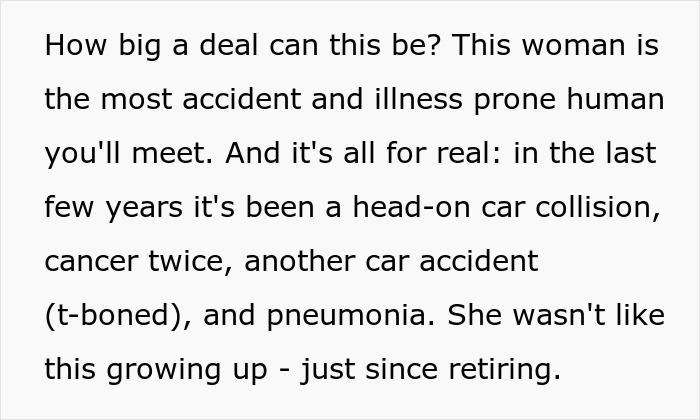

Image credits: Michael Jin / unsplash (not the actual photo)
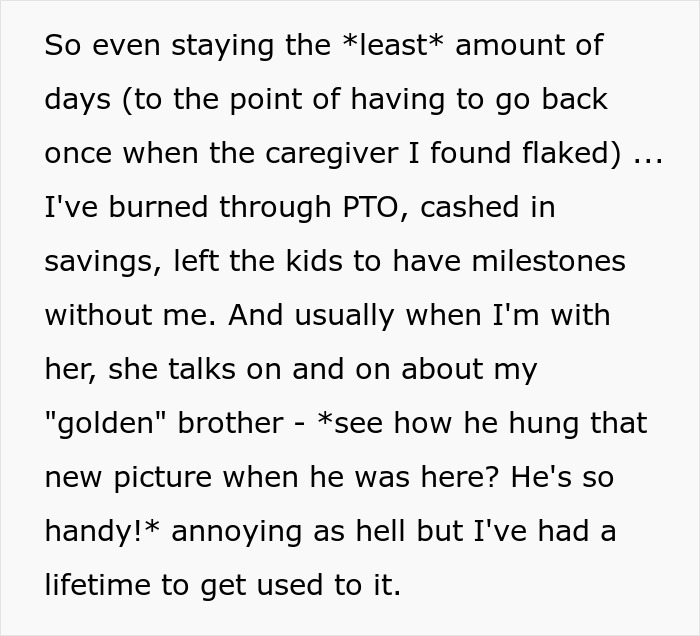
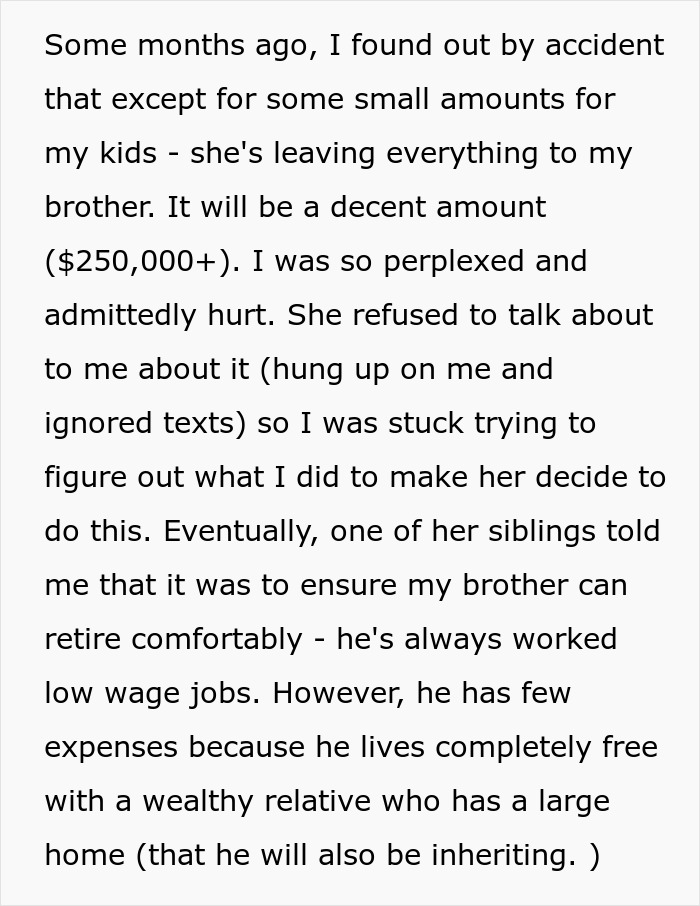

Image credits: Melinda Gimpel / unsplash (not the actual photo)
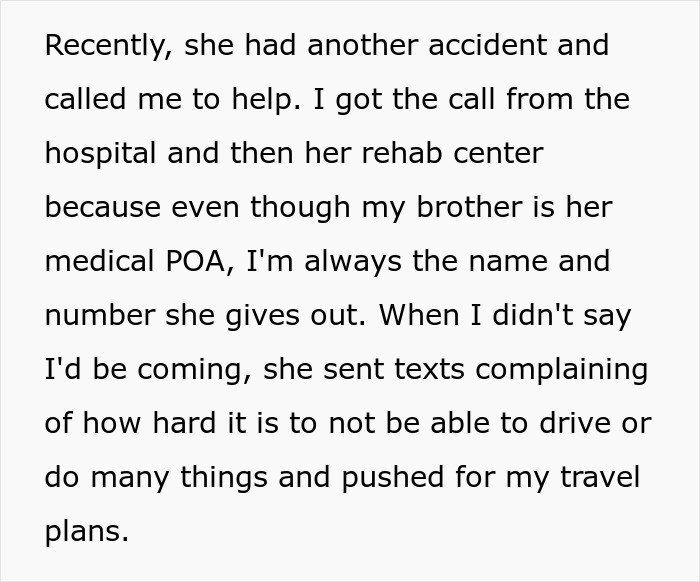
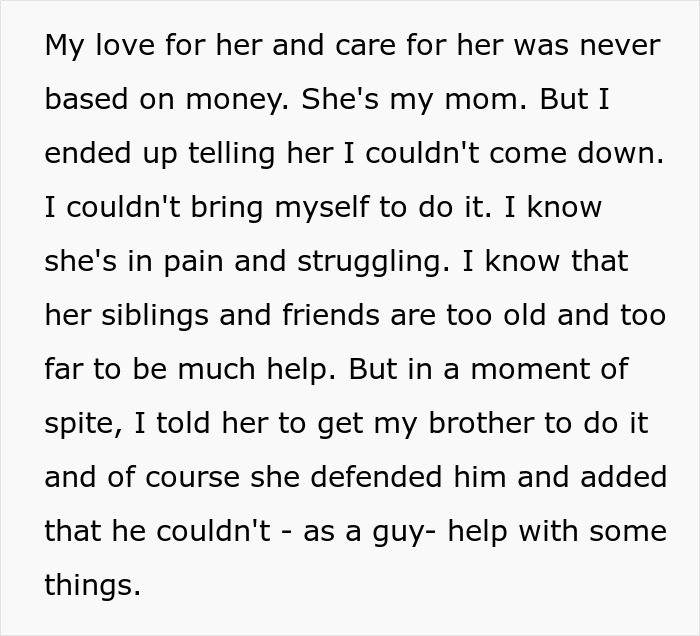
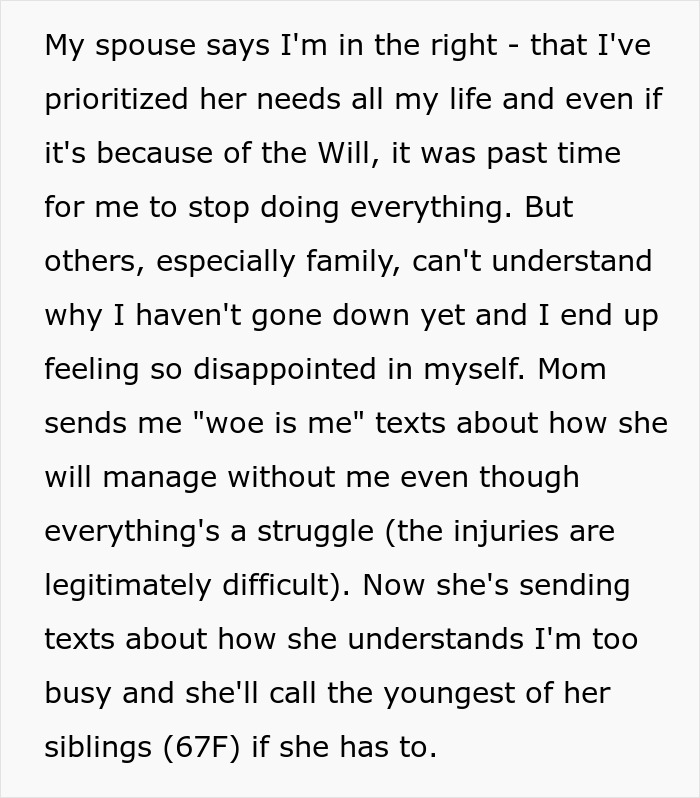

Image credits: Poesbutler

Image credits: RDNE Stock project / pexels (not the actual photo)
Roughly two-thirds of Americans (66%) say grown children should provide caregiving for an elderly parent who needs it (this includes 32% who say they have a great deal of responsibility to do so).
But many in the so-called sandwich generation — adults who are caring for their parents as well as their own kids — are stretching their own resources thin or facing difficult money decisions between their own needs and those who rely on them.
In fact, 66% of sandwich generation members reported feeling at least somewhat stressed about affording their family’s financial obligations over the next 10 years, according to a recent Policygenius survey.
Furthermore, a 2017 AARP survey revealed that 40% of family caregivers were not prepared to take on that role.
Clearly, the author of the post does feel an obligation to look after her mother, but her story highlights that people need to establish boundaries for how much they’re willing and able to provide.
“We need to figure out where those boundaries lie, and how much we can really handle ourselves as family caregivers,” Danielle Miura, a certified financial planner who specializes in planning for the sandwich generation, told CNBC. “Is there a plan B in place to take care of ourselves so that we don’t feel obligated to put ourselves in a … position that we’re not comfortable with?”
Hopefully, this incident will help Poesbutler and her relatives figure out what works best for all of them.
As her story went viral, the woman provided additional context about her situation


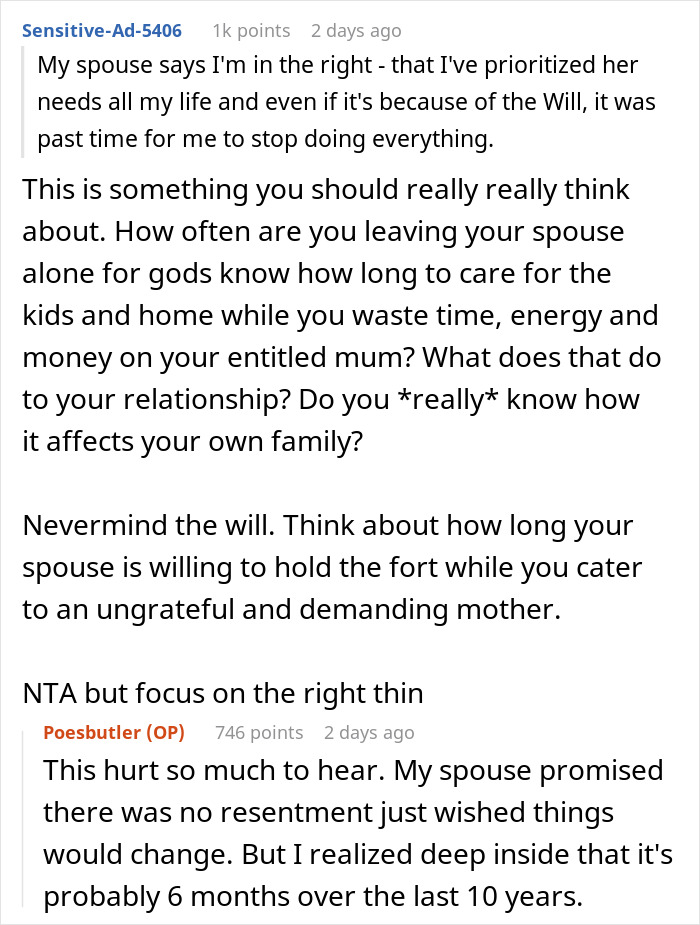
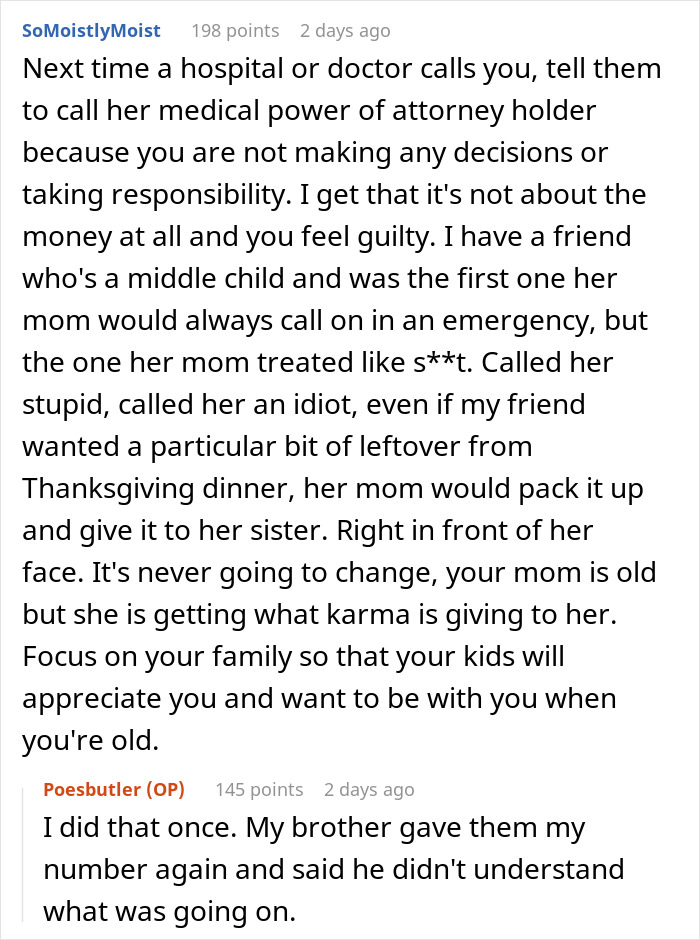
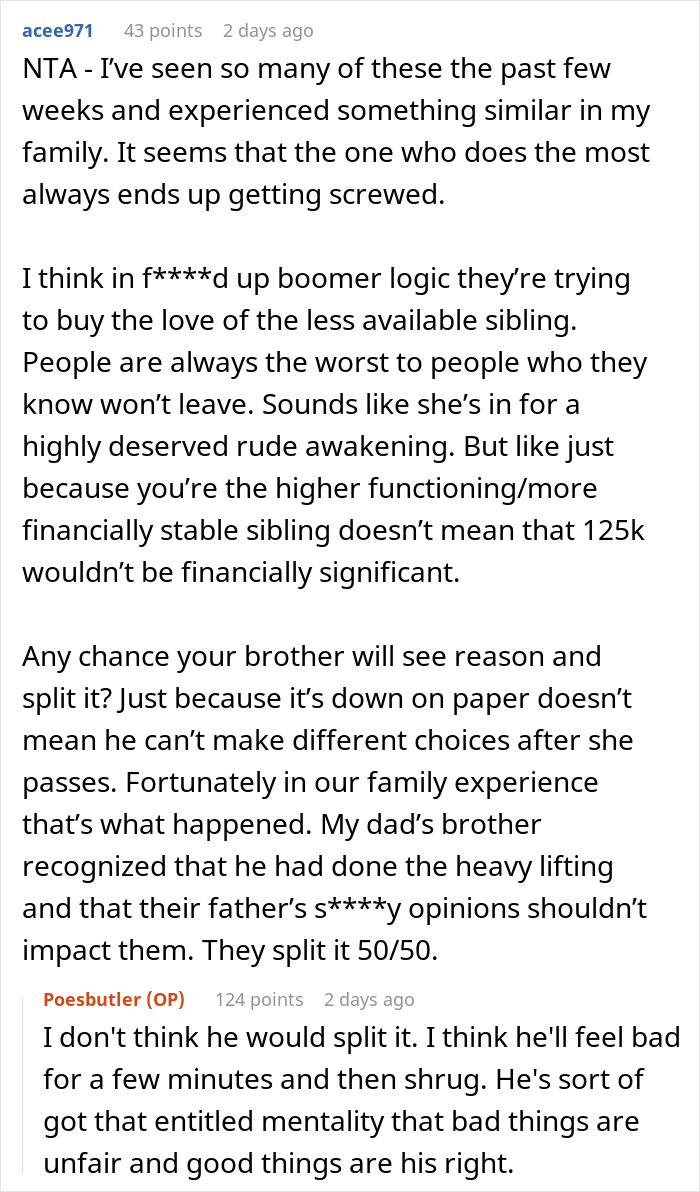
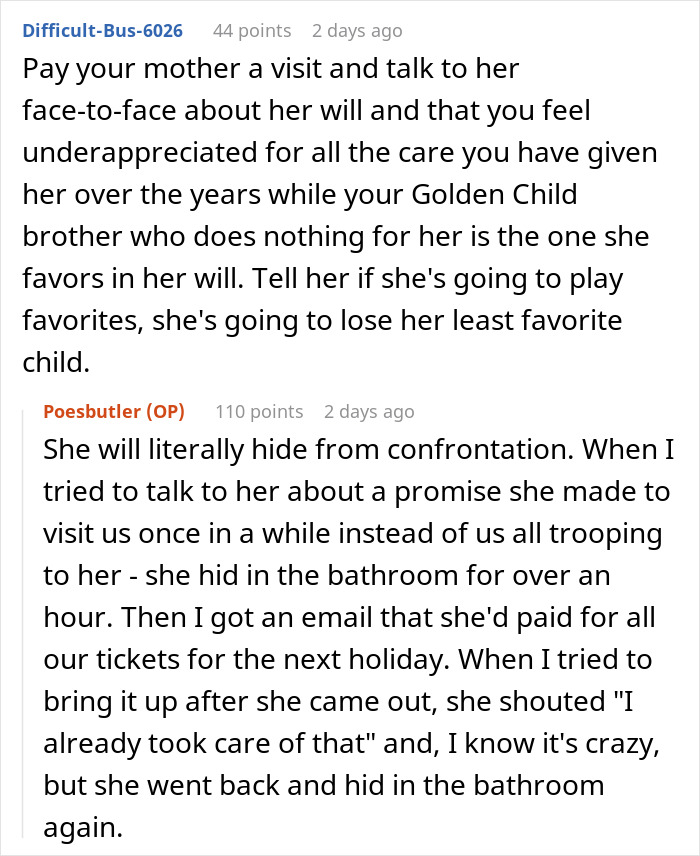
People who expressed their support for her said the woman did nothing wrong
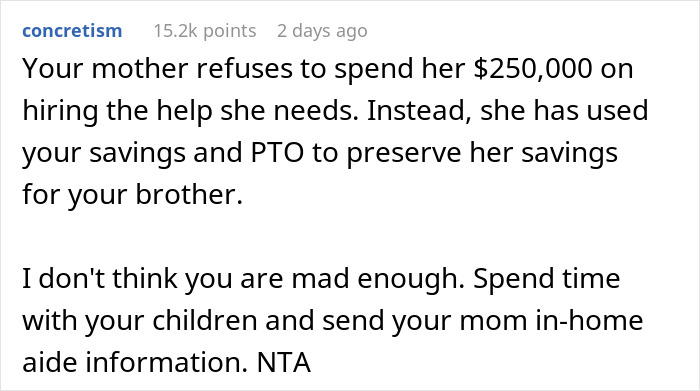

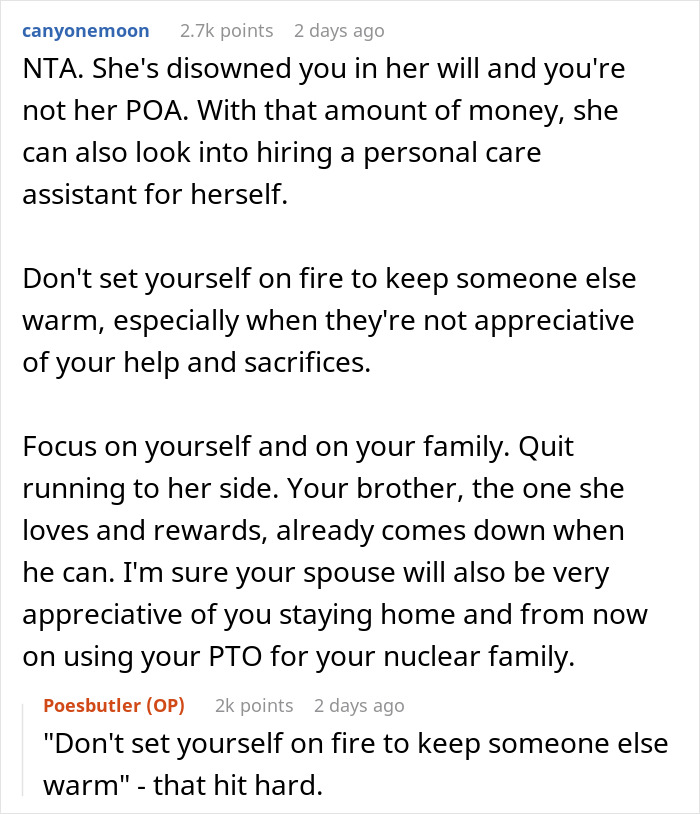
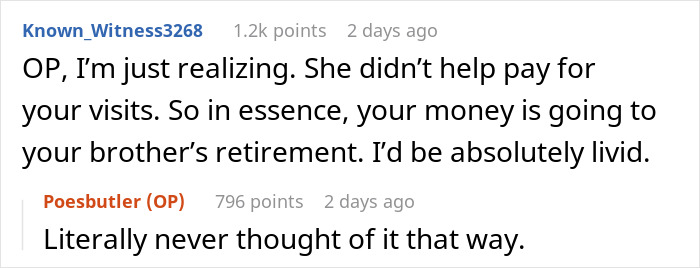
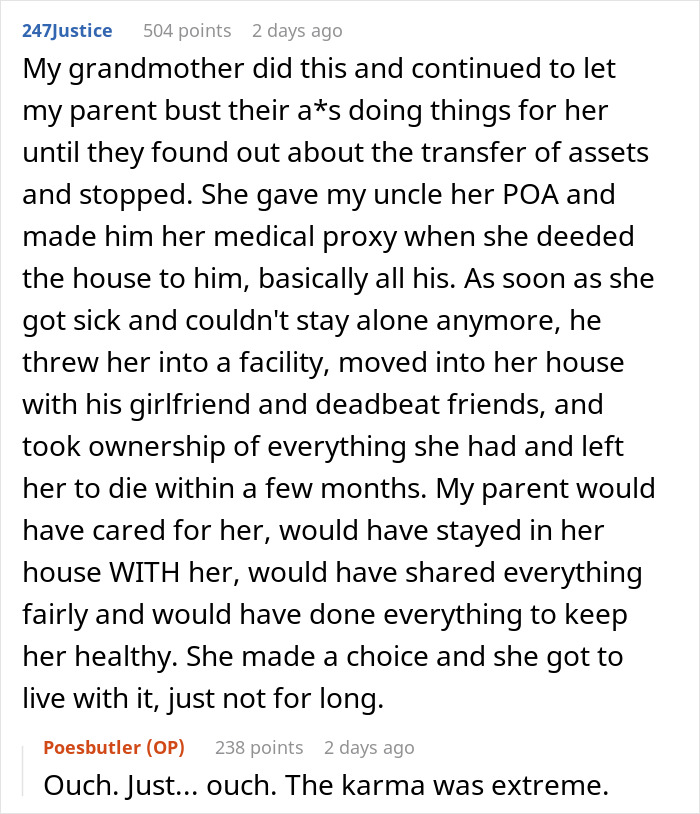
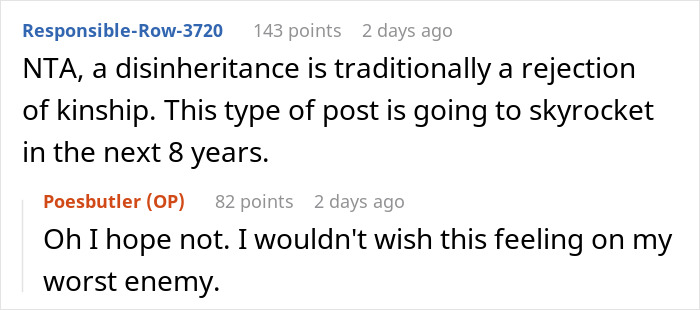

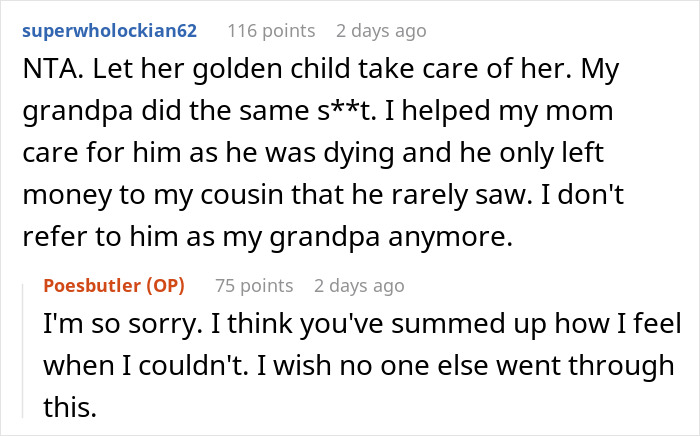
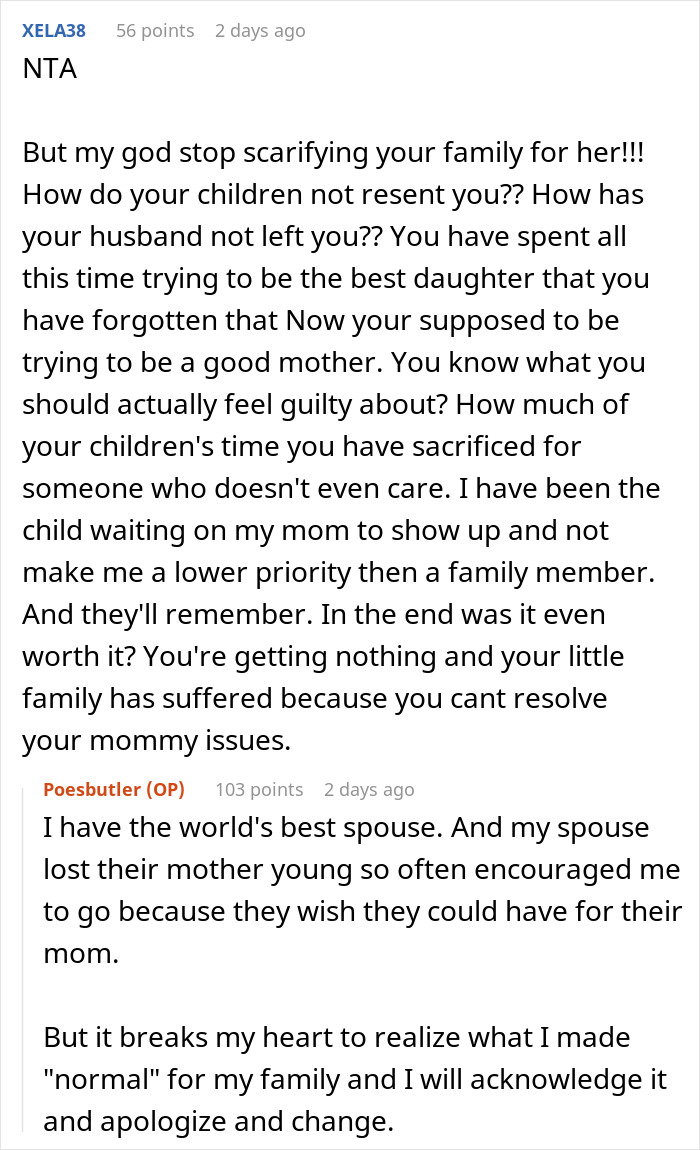
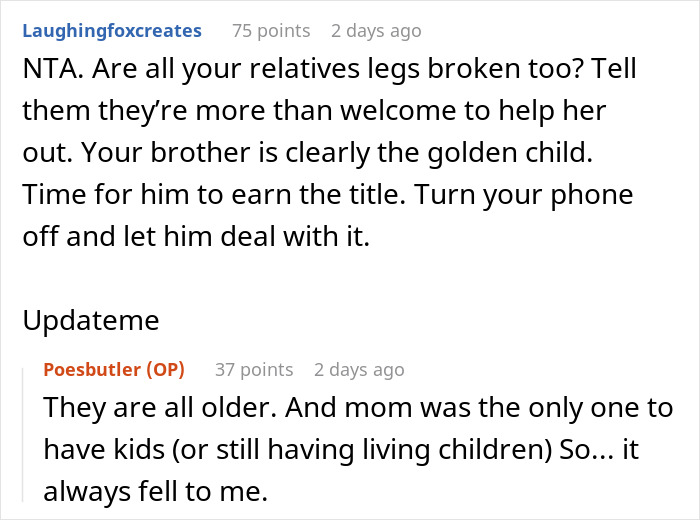
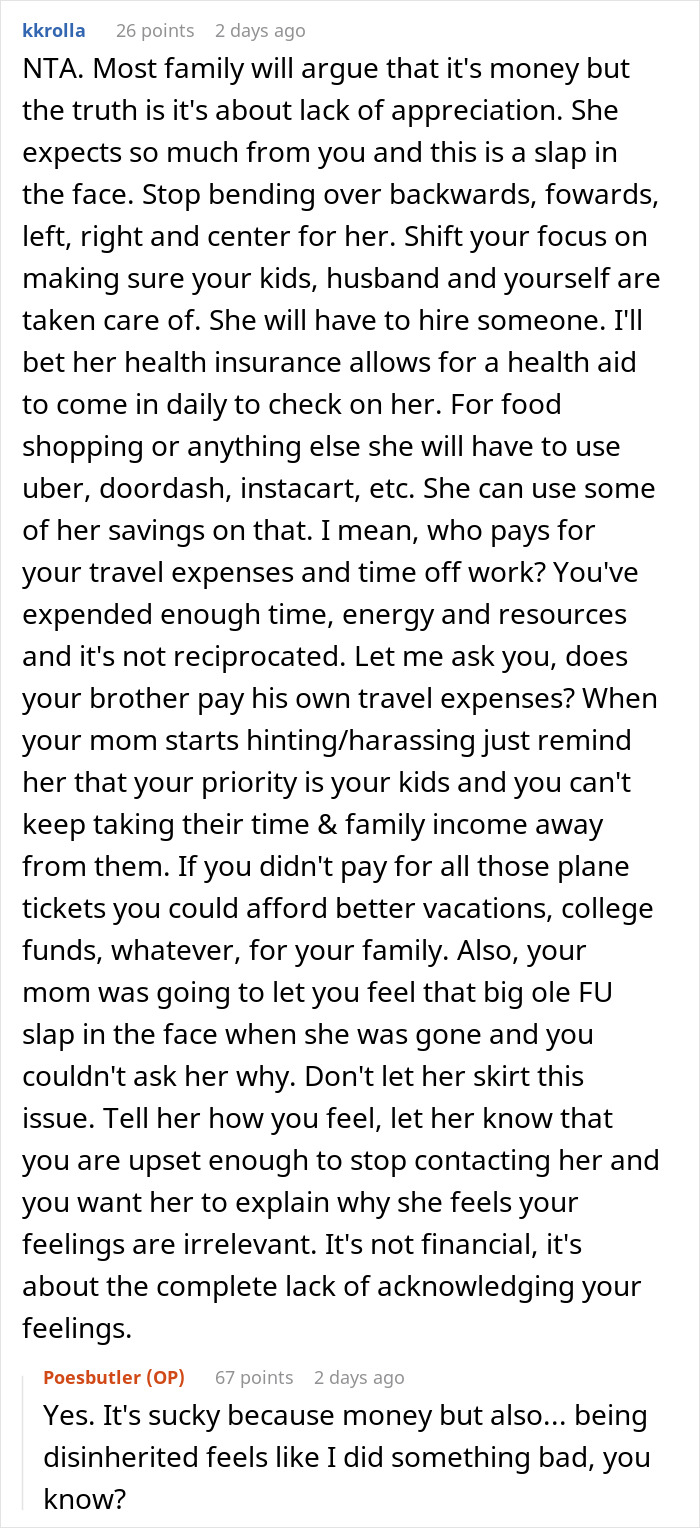
But some believe the daughter should suck it up
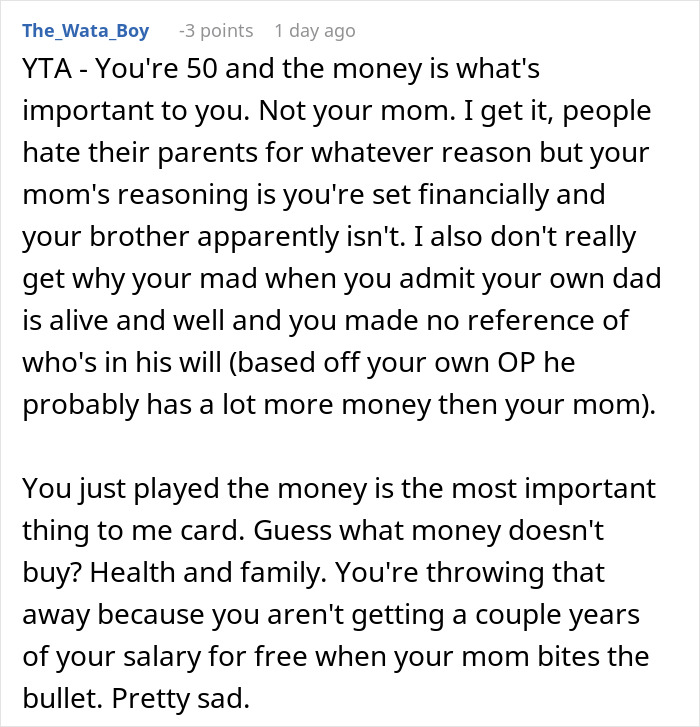
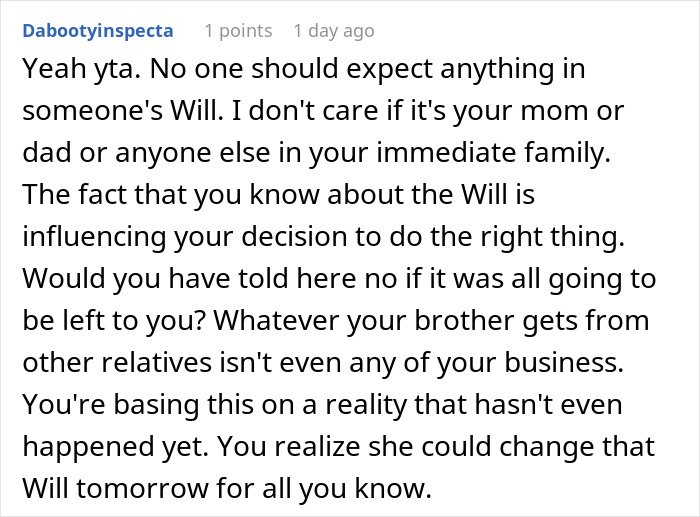
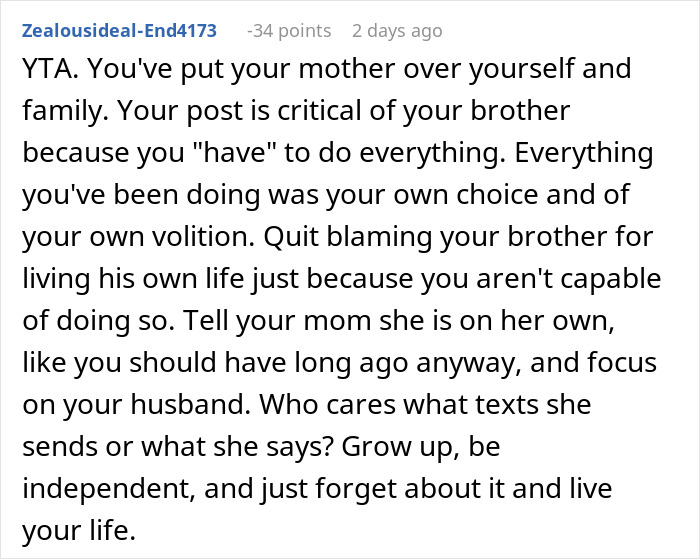

Eventually, the woman issued an update
